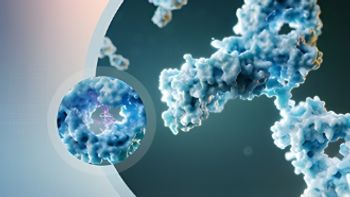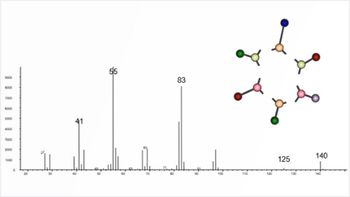
Automation and High-Throughput MALDI-Mass Spectrometry Revolutionize Peptide Metabolic Stability Screening
Automation and high-throughput MALDI mass spectrometry revolutionize peptide metabolic stability screening, allowing for rapid analysis of a large number of samples and minimizing solvent waste.
The field of peptide therapeutics is experiencing rapid growth, with the discovery of new peptide candidates for various therapeutic applications. During the early stages of drug development, it is crucial to screen a large number of peptide candidates for their metabolic stability in relevant biological matrices. Traditionally, peptide stability assays have relied on time-consuming LC–MS/MS methods, which can take hours to analyze a limited number of samples and generate substantial amounts of solvent waste. To address these challenges, scientists at Merck & Co., Inc. in Rahway, New Jersey, have introduced a groundbreaking high-throughput screening (HTS) platform for peptide stability assessment based on matrix-assisted laser desorption ionization (MALDI) mass spectrometry (MS).
The research, published in the Journal of the American Society for Mass Spectrometry, describes a fully automated sample preparation process with minimal manual intervention, significantly reducing the time and effort required for peptide stability screening (1). The team evaluated the limit of detection, linearity, and reproducibility of the platform, and successfully determined the metabolic stabilities of multiple peptide candidates. The MALDI–MS-based HTS workflow demonstrated the capability to analyze 384 samples in less than 1 hour, while utilizing only 115 μL of total solvent. This represents a remarkable improvement in efficiency compared to traditional LC–MS/MS methods.
In MALDI–MS, a matrix compound is mixed with the analyte of interest and deposited onto a sample target. The sample is then irradiated with a laser, causing the matrix to absorb the laser energy and generate ions. These ions transfer their charge to the analyte molecules, allowing them to be detected and analyzed in the mass spectrometer. MALDI–MS offers advantages such as high sensitivity, the ability to analyze large biomolecules, and the ability to tolerate complex sample matrices.
While the MALDI–MS approach enables rapid assessment of peptide stability, it is important to note that certain limitations exist. Spot-to-spot variations and ionization bias can be observed due to the nature of the MALDI process. Consequently, for confident and quantitative measurements, as well as in cases where the ionization efficiency of specific peptides is inadequate using MALDI, LC–MS/MS may still be necessary.
The introduction of this automated high-throughput screening platform revolutionizes the field of peptide metabolic stability assessment. By harnessing the power of MALDI–MS, researchers can now rapidly analyze many samples in a fraction of the time previously required, while minimizing solvent waste. Moreover, the complementary use of LC–MS/MS ensures the comprehensive characterization and quantification of peptides, ensuring the highest level of accuracy and confidence in the results.
The application of automation and high-throughput MALDI mass spectrometry for peptide metabolic stability screening represents a significant milestone in drug development, contributing to the advancement of peptide therapeutics and potentially expediting the availability of novel treatments for various diseases and conditions.
Reference
(1) Yao, H; Chen, B.; Harradine, P.; Habulihaz, B.; McLaren, D. G.; Cancilla, M. T.nApplying Automation and High-Throughput MALDI Mass Spectrometry for Peptide Metabolic Stability Screening. J. Am. Soc. Mass Spectrom. 2023. DOI:
Newsletter
Join the global community of analytical scientists who trust LCGC for insights on the latest techniques, trends, and expert solutions in chromatography.




